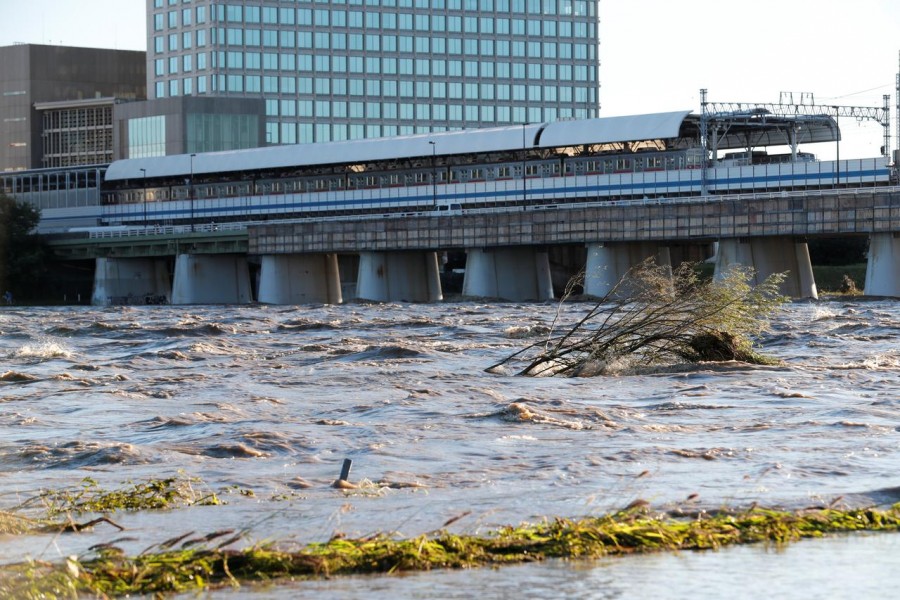The death toll in the worst typhoon to hit Japan for decades climbed to 66 on Tuesday as rescuers slogged through mud and debris in an increasingly grim search for the missing, and as thousands of homes remained without power or water.
Fifteen people remain missing nearly three days after Typhoon Hagibis smashed into central and eastern Japan, national broadcaster NHK said. More than 200 people were injured in the storm, whose name means “speed” in the Tagalog language.
About 138,000 households were without water while 24,000 lacked electricity, well down on the hundreds of thousands initially left without power but a cause for concern in northern areas where temperatures are falling.
The highest toll was in Fukushima prefecture north of Tokyo, where levees burst in at least 14 places along the Abukuma River, which meanders through a number of cities in the largely agricultural prefecture.
At least 25 people died in Fukushima, including a mother and child who were caught in flood waters, NHK said. Another child of the woman remains missing.
Survivors described how water rose rapidly to chest height in about an hour and mainly at night, making it hard to escape to higher ground. Many of the dead in Fukushima were elderly, Reuters reported citing NHK.
Residents in Koriyama, one of Fukushima’s larger cities, said they were taken by surprise by the flooding. Police were searching house-to-house to make sure nobody had been left behind or was in need of help.
“I checked the flood hazard map but it didn’t have my area as being at risk,” said Yoshinagi Higuchi, 68, who lives about 100 metres from one levee and waited out the flood on the second floor of his house as the ground floor filled with water.
“I heard there was a flood once before the war, but we just weren’t expecting the water to come over the levee despite all the warnings.”
Residents were warned by the public address systems that are a feature of Japanese cities and some evacuated to a local elementary school, he added as he and neighbours piled sodden tatami straw mats and other damaged furniture on the street.
“Nobody from city hall has come to check on us yet,” Higuchi said.
MANUFACTURERS TAKE STOCK
Around the nation, manufacturers took stock. Electronics maker Panasonic Corp said flooding had damaged its plant in a large industrial park in Koriyama.
Automakers Nissan, Honda and Subaru said there was no major damage to their factories, while Toyota said all its plants were operating normally.
Prime Minister Shinzo Abe warned that the economic impact could be prolonged.
“The national government will continue to do everything possible so that the victims of this disaster can return to their normal lives as soon as possible,” Abe told a parliamentary committee.
Finance Minister Taro Aso said there was 500 billion yen ($4.6 billion) in reserves for disaster recovery and more money would be considered if needed.
Thousands of police, fire officials and military personnel continued to search for people who may have been cut off by floodwaters and landslides, with hope diminishing that the missing would be found alive.
Though the threat of rain is expected to diminish on Tuesday, temperatures are likely to drop in many areas later this week, in some cases to unseasonably low levels, NHK said.
Four of Japan’s major refiners said there was no impact on their refinery operations from the storm.


